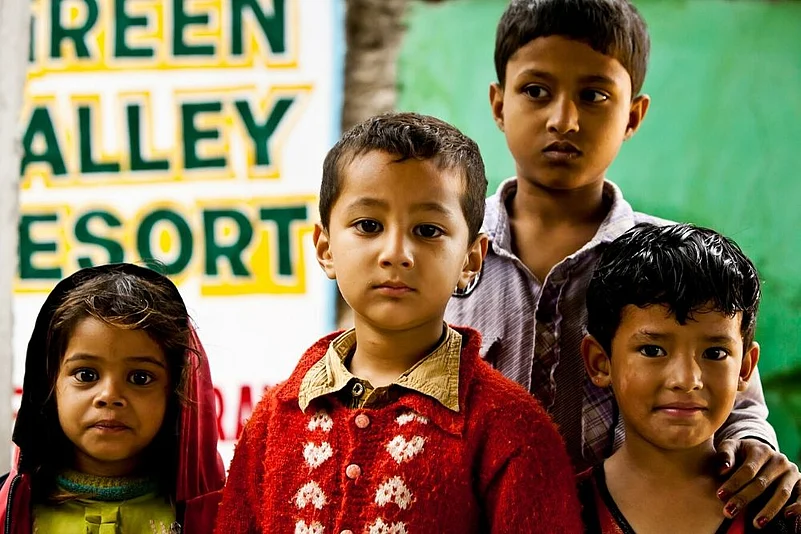Beauty lies in the eyes of the beholder - if that was really true, there would be so many definitions of what is truly beautiful. But look around, more often than not we tend to analyse, categorise and compartmentalise what constitutes beauty. For women, it is small waists, full mouths, long hair, thin bodies, thigh gaps, big breasts and of course, fair skin. The last one is particularly important. There is no escaping the fact that skin colour is a beauty standard, one that is deeply ingrained and desperately desired.
History can explain some of our fascination for lighter skin. Hundreds of years ago, skin colour was a reflection of social standing. A lighter tone implied that you were wealthy enough to avoid hard work under the sun. Fair meant privilege. And then years of colonial rule reinforced that notion. Our rulers, the Mughals, Dutch, French and the British, all had lighter complexions which began to be associated with power. Our deep-seated complex did not limit itself to history. It is now being carried forward into modern times, fuelled by globalisation, an all-pervasive media, riding a wave of consumerism and spawning multi-billion dollar industries.
Beauty is big business. After a series of marketing disasters in the past that shamelessly promoted the idea of linking success and good looks with fair skin, companies are now cautious. They understand the need to be progressive and deflect negative attention. Strict guidelines have been issued by the Advertising Standards Council of India, and thus the messaging has moved from offensive to discreet. So now the words are getting softer - from a harsh ‘bleaching’, we’ve moved to ‘whitening’ our skin, to ‘lightening’ it and now ‘brightening’ our skin. It is being packaged differently, but it is still selling the same story. It doesn’t change what we see in the mirror. And what is worrying, is that it is not just limited to our faces.
Cosmetic companies are quick to point out all our various areas that need improvement - our armpits need to be lighter, the colour of our hands doesn’t match our face, and in recent times even the vagina was not spared. A better job, a worthy spouse, happiness, success, everything depends on our personal shade card. We are conditioned to believe that our colour is a measure of our worth and a marker for future success. The prejudice runs deep and the association starts early.
When a child is born, much of the discussion is centred around its skin tone. As it grows older, the stigma against dark skin colour begins to solidify. A quick look at any matrimonial site will reveal that ‘fair’ is still one of the most sought after criteria in most arranged marriages. We are being constantly told fair is better. Advertisements carry implicit messages, popular media perpetuates the myth, cosmetics business exploit our insecurities, and we keep succumbing to it.
A WHO report states that over 61% of the women in India use skin lightening creams regularly. Bottles lined up in the bathroom - deodorants, moisturisers, creams, shampoos and even hygiene washes, all offer to help. No surprise then that revenues from the women fairness cream category alone will grow to a humongous 5000 crores by 2023. Chemical peels, pills, laser treatments, injections, steroids and nani ke nuske, we are willing to try everything, despite potential health hazards that can range from mental stress to poisoning and even organ failure.
Bias is too weak a term, it almost an obsession, and a dangerous one, with both psychological as well as medical implications. Over the past few years there has been an attempt to recognise the fact that apart from caste, creed, race and gender, colour too is a very real form of discrimination, one that cuts across cultures and countries.
Discrimination because of skin tone impacts lives. It can be very divisive and intensely personal when it shows up in families, with unfavourable comparisons between siblings. It shapes our self-esteem and influences our personal relationships and our choices. The negative ramifications are not limited to individuals alone. Studies highlight how colour biases also effect the development of technology and our future - from self-driving cars that are more likely to hit dark skinned people, to biases built within dating apps. It is tough to break free.
There have been global campaigns to build awareness, laws are being passed and influential voices are speaking out. From time to time it pops up in our social context too. Most recently being the discussion around actor Bhumi Pednekar’s character in the movie Bala. She may or may not have connected with the audience as a dark-skinned woman, but the film brought our attention back to the issue.
Change of socio-cultural mindsets will be a very slow and tedious process. Our colour reflects our heritage, our family, genes and our lifestyle. It defines who we are. We need to accept our differences, especially in a country like India, that otherwise celebrates its diversity.
Look into the mirror - that’s where this must begin. It will be a long and exhausting road to self-acceptance, but we must get there. Beauty cannot be skin deep, there is so much more to each one of us.
(Ekta Kumar is a writer, columnist, artist and works closely with the European Union on gender and civil rights-related issues. Views expressed are her own.)


























